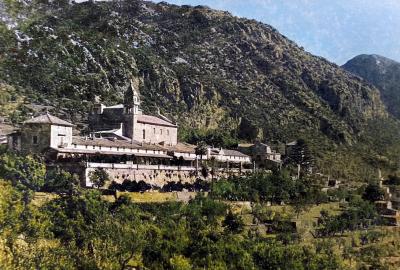How does the presence of terraced fields affect soil conservation and farming efficiency in Mallorca?
Similar Topics
terraced fields mallorca
soil conservation mallorca
farming efficiency terraces
terracing soil erosion
sustainable farming mallorca
agriculture terraces benefits
terraced land productivity
traditional farming practices
The presence of terraced fields in Mallorca plays a significant role in enhancing soil conservation, an essential factor in maintaining the island's agricultural sustainability. Terracing is a traditional farming practice that involves creating flat platforms on sloped land, which slows down the flow of water and reduces soil erosion. In Mallorca, where hilly and mountainous terrain is common, these terraces help prevent the loss of fertile topsoil during heavy rains, a critical benefit given the region's periodic droughts and irregular rainfall patterns. By retaining soil on slopes, terraces promote better moisture retention and reduce runoff, which helps preserve the land’s agricultural productivity over time.
In terms of farming efficiency, terraced fields enable more effective use of the island’s challenging terrain. The flat surfaces created by terraces provide stable ground for crops, facilitating irrigation and planting compared to uneven, steep slopes. This arrangement allows farmers to cultivate a wider variety of crops by optimizing growing conditions, including grapes, olives, almonds, and vegetables, which thrive on the island. Moreover, terraces can help regulate microclimates by reducing wind exposure and increasing sunlight absorption, which benefits crop growth. The effort required to build and maintain terraces, while significant, is offset by their contribution to long-term land viability and the ability to sustain agriculture in an otherwise difficult landscape.
Overall, terraced fields in Mallorca reflect a harmonious balance between human ingenuity and natural landscape, preserving both soil and agricultural output. They stand as an enduring symbol of the island’s rural heritage and commitment to sustainable farming practices. Through soil stabilization and improved farming conditions, terraces protect Mallorca’s agricultural environment, supporting both local farmers and the broader ecosystem that depends on healthy land management. This makes terraced fields not only a practical farming tool but also a cultural landmark valued by locals and visitors alike.
In terms of farming efficiency, terraced fields enable more effective use of the island’s challenging terrain. The flat surfaces created by terraces provide stable ground for crops, facilitating irrigation and planting compared to uneven, steep slopes. This arrangement allows farmers to cultivate a wider variety of crops by optimizing growing conditions, including grapes, olives, almonds, and vegetables, which thrive on the island. Moreover, terraces can help regulate microclimates by reducing wind exposure and increasing sunlight absorption, which benefits crop growth. The effort required to build and maintain terraces, while significant, is offset by their contribution to long-term land viability and the ability to sustain agriculture in an otherwise difficult landscape.
Overall, terraced fields in Mallorca reflect a harmonious balance between human ingenuity and natural landscape, preserving both soil and agricultural output. They stand as an enduring symbol of the island’s rural heritage and commitment to sustainable farming practices. Through soil stabilization and improved farming conditions, terraces protect Mallorca’s agricultural environment, supporting both local farmers and the broader ecosystem that depends on healthy land management. This makes terraced fields not only a practical farming tool but also a cultural landmark valued by locals and visitors alike.
